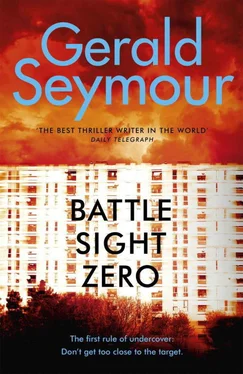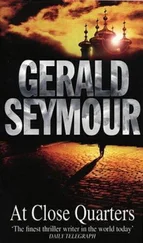The remaining drivers, seven or eight of them, pretty much left Andy alone. Not quite suspicious, but wary. Could have been that they had picked up the signs, well telegraphed, that the newcomer was fast tracked in, without explanation. Not hostility, but caution. Most of them went together, with Veronica who ran the office, down to the Black Lion along the road on a Friday evening after the shifts finished and had a drink, not more than two, before heading home. Andy did not. A warm pub, a drink, the end of a week, and chat flowing was when histories were expected, anecdotes, experiences shared. Always an excuse made and he’d go home alone.
He checked his phone. Hi, Did you run it at them, a break? Hope so. The Hall tonite, usual time xxx . The slow smile slipped on to his face. That was Zed, the undergraduate studying Social Sciences, and with a string of good exam grades to her name, and not bothering to suggest that he might have something else on his mind that evening, and would pass her up. Taken for granted, but he was only a lorry driver: a sweet boy, fun to be with, and she in debt to him and big time, but not her equal. And the slow smile went wry, and he could remember her kissing the night before, and her enthusiasm. He went on polishing the mirrors until the view in them was without blemish, and he saw them. Saw them quite clearly, both IC4 on the ethnic register, and they made a poor fist of looking casual.
They were joined by the Somali lad who worked in the company canteen where they did the big breakfasts and the lunches, and kept up the supply of tea and coffee. The Somali boy was friendly enough, and seemed to wear a grin most times, and could not have been more helpful in tidying tables. Others said that his history – where he had been, what had happened to him, how he had escaped a civil war – was a terrifying story. The drivers liked him. There were two guys opposite the gate, on the far side of the road. The Somali boy greeted them, and there were hugs, and then conversations, and the boy was shown a phone screen. Might have been a photograph, reasonable assumption. Andy was finishing his mirrors and needn’t have gone on but did so because it gave him the chance to stay where he was, face their way and have a purpose for it. The boy made a little gesture, not as anyone else would have noticed. Andy thought he was identified, a rule was run over him. Two guys there, at the gate, and looking to check out a friend – IC1 Caucasian male – of Zeinab, who was categorised as Identity Code IC4 Asian female. A meeting of cultures, young people stepping over a line, and their associates would want to know who he was and do an eyeball on him. He saw the Somali boy almost flinch as if he realised that he had gone too far, like a favour had been called in and pressure applied. The guys stayed watching him as he finished with the mirror. Predictable… could have been her cousins, or her neighbours, and there would be anxiety about any relationship that a girl from Dewsbury had formed with a lorry driver in the Manchester suburbs, or could have been other friends of hers, other associates. He thought they might have taken more pictures with their phones, and both stared across the width of the road and through the gate and past the security shed and into the yard… and were gone.
She’d kissed well the night before, not with much experience, but fresh, fruity. He replied to the text, said he’d be there when she wanted him. Why? He smiled his private smile, then, satisfied his vehicle was as well maintained as any of them, went to get his next delivery docket from the office.
It was wrapped carefully.
Two men did it. They did not concern themselves with dismantling it, had only detached the magazine. The overall length was a little short of a metre, and the weight of the package would be under five kilogrammes. There would be three magazines, each filled with 25 rounds, near to capacity. Although the two men, working in a warehouse on the southern outskirts of the port of Misrata, on the coast of Libya, had examined the weapon, had noted its age and the poor state of the woodwork, and the discoloration where paint had long since weathered off the metal, they fulfilled their instructions. It was only one weapon, and it came from a store that reached high inside the building’s walls. Crates of the AK range, in every state of maintenance, awaiting sale.
They used layers of bubble-wrap plastic sheeting. In many places the weapon, and the magazines which were of the same vintage, had been dropped and chipped, were scraped with coarse scars, almost obliterating the stamped serial number of which only a part was visible – 16751 – but the men would do as they had been told because the alternative was unwelcome. They were dependent on the patronage of a warlord. Because the warlord smiled on them, they could put food on the table where the wives and children fed. If the warlord had thought his instructions were ignored then they might well be shot, and their wives would either starve or perhaps go to prostitution down by the docks. They wrapped it well. Last to slip from their sight was the battered wooden stock. That it had lasted so long, their estimate was 60 years, was extraordinary, and there were notches cut in a line, and one deep groove where grime and rot had set in and weakened it. Around the bubble-wrap went adhesive tape, metres of it. In English, because they had been told that their native Arabic was not accepted, the younger and better educated of them wrote a single word: ‘Tooth’. He knew that a tooth was in the jaw, was used to chew with, but why the package containing a vintage weapon such as the AK-47 should have that written on it he had no idea.
Outside, two pick-ups waited. Neither of the men had actually fired the rifle. It had to be assumed that it would function satisfactorily. Its value might well have been as low as $50. A newer weapon, and the warehouse was heavy with them, might sell in Europe for $350, maybe as much as $500. This one was Russian, almost an original off the production line, almost a piece for a museum – except that in the circumstances of Libya that day there were no functioning museums, and everything of value that had been lodged in them during the times of the fallen dictator, Gadaffi, the dead tyrant, had been stolen. The worst weapons, imitations, were the Chinese copies, but they could be provided in better condition than this old specimen. They did not argue or debate, were thankful to have food on their plates each evening.
The two men, happy with their work, drove the pick-ups down to the dockside area. Going the length of Tripoli Street they navigated the heaps of rubble from destroyed buildings, and the rusting tank carcases, and burned-out cars, and went faster along the stretches where bullet-pocked walls seemed about to topple. An old freighter was tied up, but pungent smoke surged from a stubbed funnel. In the pick-ups were antiquities, also well wrapped, which had come from museums or been chipped from sites farther north. They were loaded by trolley. Last on board was the package containing the weapon, just the one, old and with a history. The Roman and Greek artefacts would stay on deck during the voyage to the west, but the rifle was taken below and stowed under the captain’s bunk. It would be gone in an hour.
Neither of the men had an idea of why they had been ordered to choose a worthless relic from the store, nor where it would go, nor why it had importance.
‘I suppose this means it’s just about kicking off,’ Gough said.
Pegs answered him, ‘Usually plays around a bit, nothing much happening, then starts being serious.’
‘All seemed rather routine.’
‘I doubt you believed that – but certainly beginning to stampede.’
He took a last look at the boy’s face. Not pretty. A pathologist would have said to within an hour or two how long little Tommy the Tout had been in the water, but the deterioration was always fast. The eyes had no life and the lips no colour and the arms seemed awkward and barely attached. The main weight of the corpse was in a bed of drooping reeds at the side of the canal. They’d walked past it, Pegs leading and him following and not passing any comment that could have been overheard. The identification came through the North West Counter Terrorist people at their Manchester office, and he’d have been flagged up because of missing two scheduled meetings. Neither Gough nor Pegs would have wanted it broadcast off the rooftops that this guy. Tommy the Tout, was important enough to have brought big players up from London. The operation was at an indeterminate stage, budget not fixed, aims not cemented in, targets vague, and both the visitors thought the least put about was best. It was good of them to have left him in the water for this length of time, and there were crime scene tapes blocking off most of the towpath to the position on the canal, outside of Manchester, now used only by narrow boats and tourists. He nodded, a tiny gesture but one of the detectives picked it up, and it gave permission for them to fish him out.
Читать дальше












